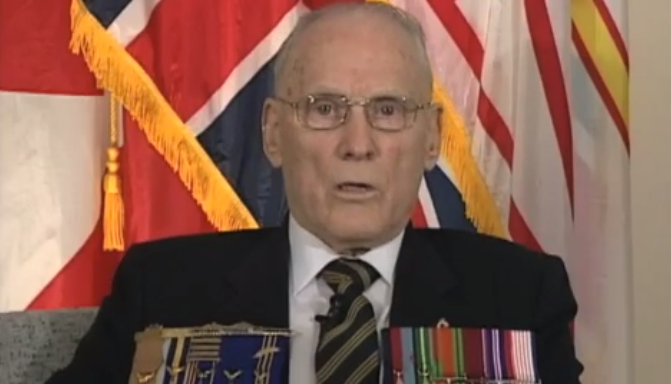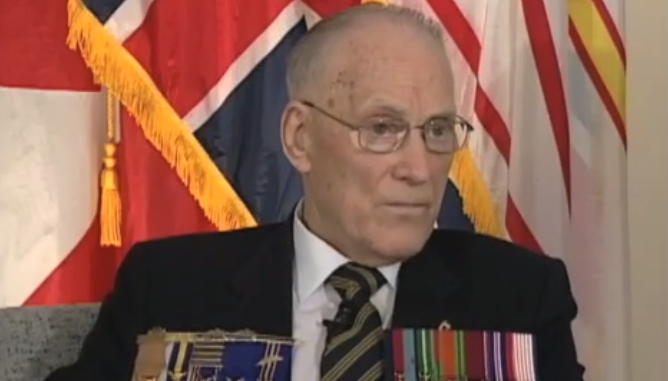But after being in Changi a little while they decided well
there’s too many people here, we’ve got to move some. This
day they got us out on the parade ground and they had a good
parade ground in Changi cause there’s a lot of army there you
see. They got us on parade ground and they numbered off a
bunch of men. Didn’t know where we were going, we had no
idea. We had nothing to take with us anyhow, we had no
clothes, bags, a few rags you had on. They never gave us any
underwear anytime we were there you know. All we had was
g-strings. They put us on the parade ground, they number us
off. They, Japanese goes like this - ichi, ni, san, shi, go,
roku, shichi, hachi, kyu, ju- numbered off in Japanese and
when they got between me and a fellow Olman, from Bristol,
England, they just dropped their arms like that, they said,
“You go that way, you go that way.” Olman went that way, I
went that way. I went on a Kamakura Maru which was built in
Belfast, Ireland and went to Formosa and then from Formosa to
Nagasaki. And I arrived in Nagasaki on the 17th day of
December 1942.The camp itself was an old wooden shack or
bamboo shack and in the rooms, I must say they had shingles on
the roof. There was wooden shingles on the roof. I can tell
you that one, it wasn’t thatched. They had one table running
through it, a long table with so many men on each side of the
table. There was nothing to keep you warm, not a thing in the
world. No heat in the building and we lived there with a
bunch of men on this side and a bunch of men on the top and
the same on the other side and the table ran through the
centre. And in that room they’d turn on the lights about six
o’clock in the morning in Avon Valley and get you out for
debugging. But the rooms themselves were so uncomfortable and
so, well I suppose we caused the bed bugs and the fleas and
the body lice. I suppose they came from us because we had no
baths see. We only had a bath every two or three weeks and
that wasn’t a bath. When you’re in a place you don’t have any
soap for years you don’t get yourself clean without soap, and
we didn’t have any soap for three years. We’d get this hot
water thing and of course every couple of weeks, there’d be
forty or fifty men get in the bath together; with all kinds of
tropical sores, all kinds of diseases and how one survived
I’ll never know because tropical ulcers were a very big thing
out there. People would have them right from their ankles
right to their groin and they’re very hard to conquer, very
hard to cure cause you had nothing to cure them with. One of
the first killers or the biggest killer we had in Japan when I
arrived there first was pneumonia and pleurisy. We went from
Singapore with 90 degrees to 100. We went to snow flurries in
Nagasaki and the first three months we were there we lost
sixty men - pleurisy, pneumonia. They never had an aspirin
tablet, they wouldn’t give it to ya anyway. And many of lives
could have been saved if they had a pack of aspirins or Epson
salts, whatever the case might be. Vitamin B tablets, we
didn’t have any of these. We had nothing for malaria and the
Japanese wouldn’t give you any because whatever they had, they
had for themselves and their own army.





